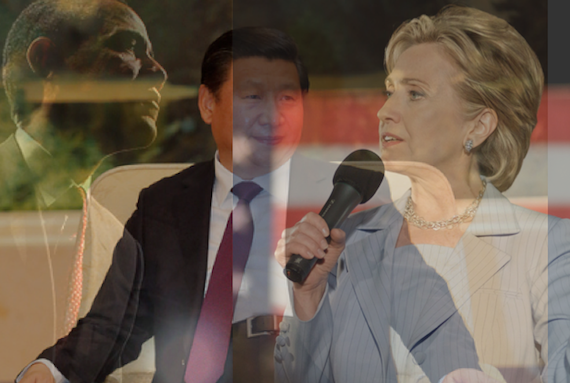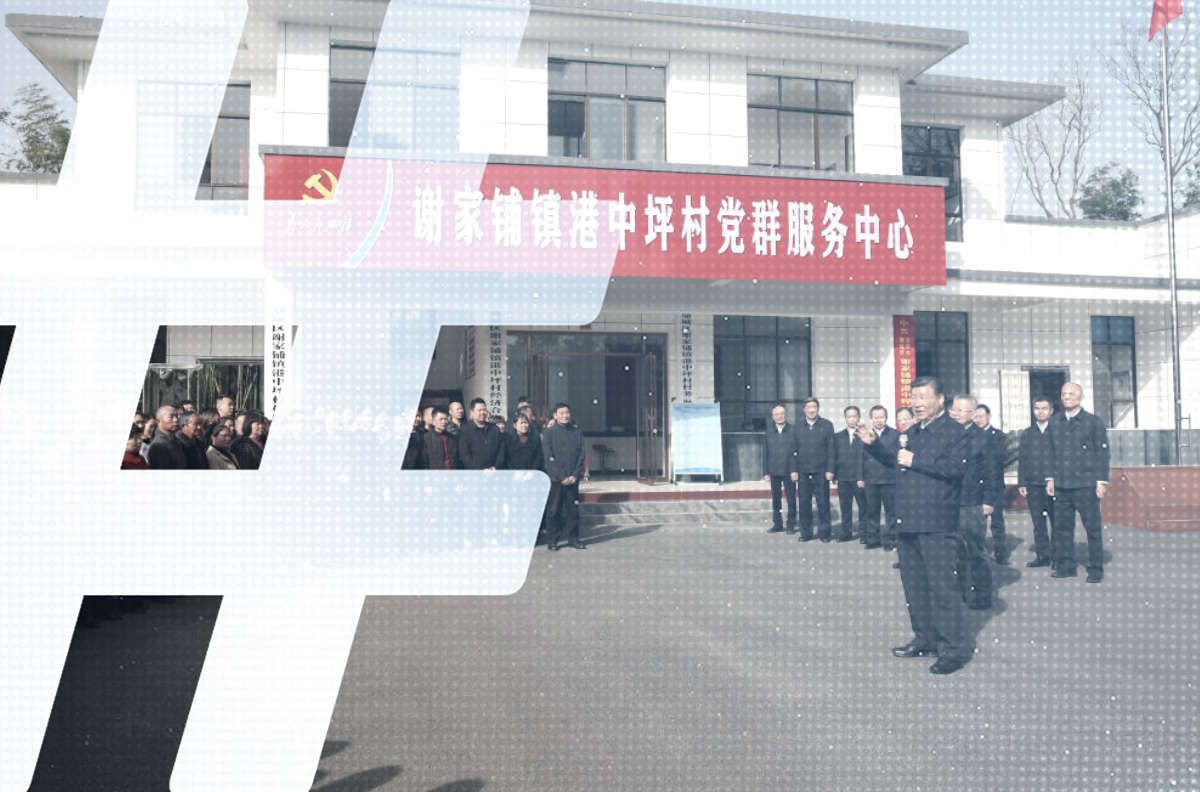In a news piece promoted to its homepage today, China’s official Xinhua News Agency praised the country’s top internet official, Lu Wei (鲁炜) — the director of the former State Internet Information Office, now called the Cyberspace Administration of China (CAC) — for his deft sale of Chinese internet policy while on a visit to the United States.
Recapping Lu Wei’s attendance of the 7th Internet Industry Forum in Washington D.C., and his part in a seminar at George Washington University, Xinhua said: “During the day, Lu Wei extended three invitations to the deputy secretary of state and to university students, and the charm of his ‘internet diplomacy’ was on full display.”
Used in this way, bespeaking China’s confidence in making its presence felt in global internet policymaking, this pair of words, “internet diplomacy,” or hulianwang waijiao (互联网外交), mark an important shift. Why? Because it is the very first time state media in China have used the phrase in a positive sense at all, moving beyond the rhetoric of foreign interference.
China, it seems, has entered its own era of “internet diplomacy.” It is ready to embrace the idea. But it wasn’t always so.
On March 14, 2011, the official China News Service reported on a second speech on “internet freedom” (互聯网自由) by then U.S. Secretary of State Hilary Clinton (following on her 2010 speech). In this follow-up speech, the news service noted, Clinton “included this concept [of internet freedom] in the foreign policy framework of the United States.” With slightly pejorative overtones, the report added: “The current situation shows that America’s internet diplomacy has already moved on from verbal utterance to a stage of concrete implementation.”

An article posted to Sichuan province’s official news portal on June 19, 2011, spoke of the “web war” (网战) — in Chinese, a play the word “website” — waged by the United States. According to the article’s “web war” timeline, in 1995 “the Pentagon began organizing a group of ‘hackers’ to engage in an information war against America’s enemies.”
Referring to reports of “shadow” internet and mobile systems the U.S. might deploy to assist dissidents living under repressive regimes in circumventing censorship — including the so-called “internet in a suitcase” — the article said such systems were “just the tip of the iceberg of the internet diplomacy pursued by the Obama government.”
China, it seemed, was forever on the receiving end of “internet diplomacy” — a tool, a ploy, or even a conspiracy, of the West.
On January 5, 2012, Liu Zhongmin (刘中民), director of the Middle East Studies Institute at Shanghai Foreign Languages University, wrote a piece called, “The Successes and Failures of China’s Foreign Policy in the Middle East,” published in Shanghai’s Oriental Morning Post. Topmost among China’s successes, Liu listed its adherence to the doctrine of non-interference.
Among the many lessons dramatic changes in the Middle East held for China, however, Liu noted the role of the internet and the nettlesome issue of “social management.”
. . . “Internet politics” and “internet diplomacy” have become a serious challenge facing China. At present, the internet has already become the principal tool by which the United States seeks to export democracy and carry out political infiltration (政治渗透). Responding to “internet diplomacy” will become a normalised political and social issue facing China.
“Internet diplomacy” was a political bogeyman, of a piece with the CCP’s recurring nightmare that the “Arab Spring” might make its way east.
In March this year, even as the power of China’s new internet czar grew, “internet diplomacy” was still an exclusively American matter. Here is a portion of a report by China Youth Daily about First Lady Michelle Obama’s China visit:
The U.S. government is also promoting with full force its strategy of “internet diplomacy”, with the belief that America’s global foreign policy relies not just on the diplomatic corps, but on the “online diplomacy of the people,” in which American citizens are encouraged to interact with foreigners on the internet . . .
But today, December 4, 2014, we can finally say that “internet diplomacy” is China’s strategy, pursued with a gusto China’s own state media see as only befitting its status as a great nation.
Mirroring the praise of Lu Wei from Xinhua today was an article in the overseas edition of the official People’s Daily, the gist of which was that foreign media had voiced admiration for Lu Wei’s nuanced understanding of the internet.
The final section of the overseas People’s Daily article offered the views of never specified Chinese scholars, who gushed (apparently in unison): “It would be apt to dub this ‘the year of internet diplomacy.’ These actions show the pluck and confidence of a great nation!”






















